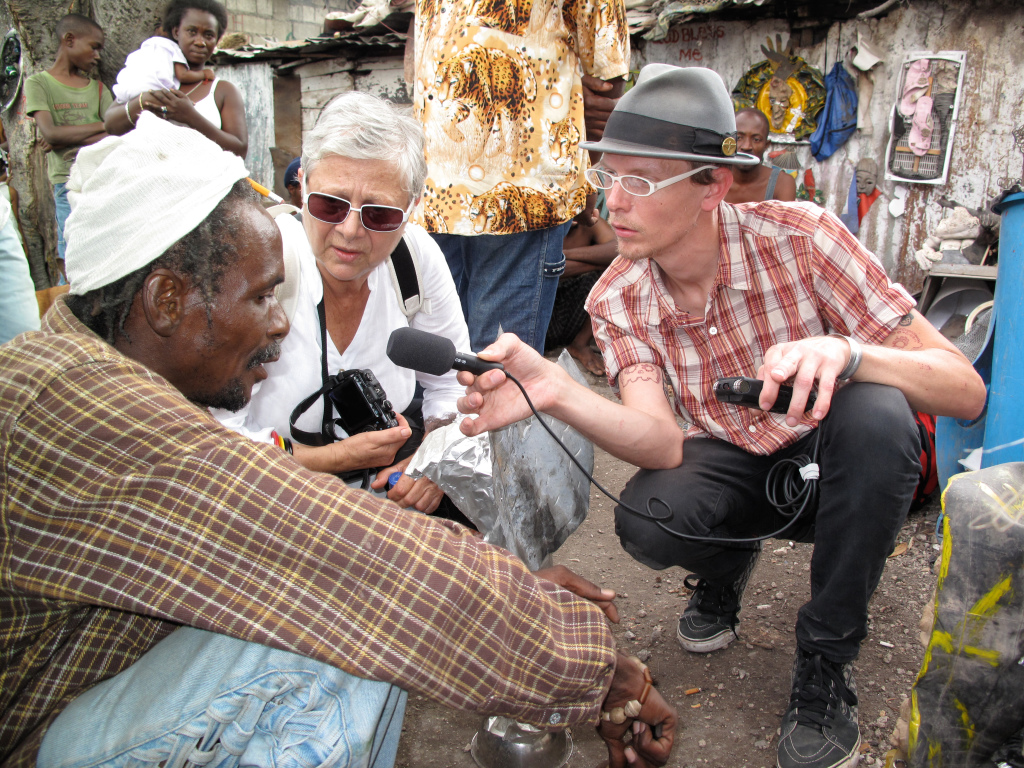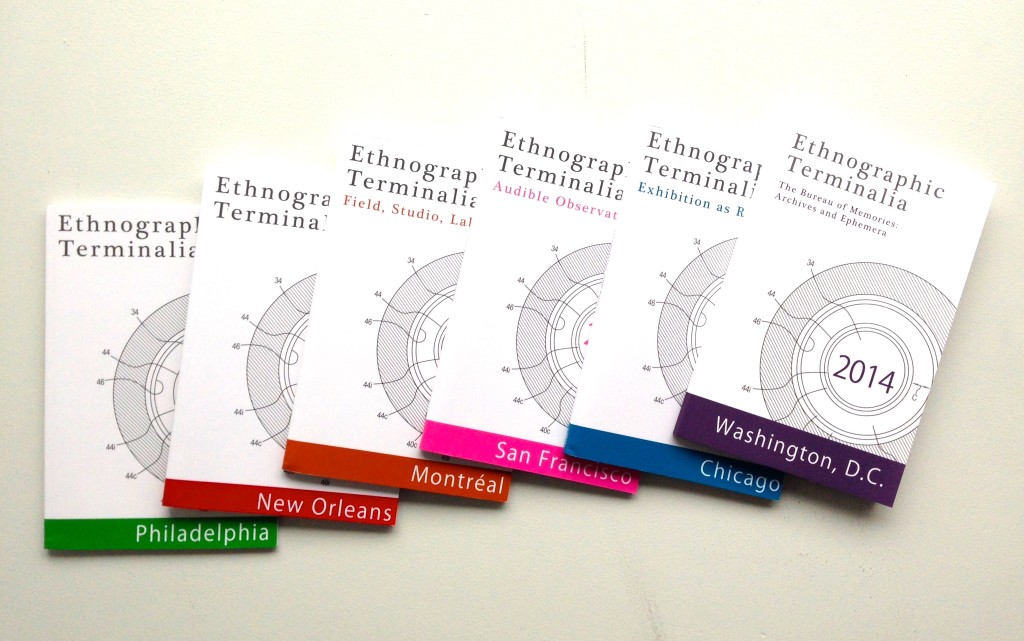The Moment of (Ecstatic) Truth in the Translator’s Dance
For several years Robert Peterson and Myron Beasley have collaborated on a series of sound projects derived from an archive collected in Port-au-Prince, Haiti, weeks before the earthquake of 2010. At the core of the archive are interviews of five master sculptors that base their operations around Gallerie E Pluribus Unum, a gallery and workshop situated in the center of the bustling city among scrapyards and commercial wood carving operations. Our current fascination is with the gaps that occur in translation during the intercultural interview process. Our proposed project critically interrogates the space between interview narratives and translation. We seek to interrogate the ‘lost’ in translations as well as what is embellished by the translator. Here the translator is critical as he represents not only someone doing a job, but someone possessed of an idiosyncratic narrative about himself and his culture that he desires to project. The translator lives in the ‘significant gaps and blind spots’ between cultures which is at the crux of this iteration of the Ethnographic Terminalia project. Recognizing that the area of translation studies is broad and vast in technique and theory speaks to the power given to a translated text. We are interested in the gaps in understanding produced by the performance of the translator as they constitute an ‘ecstatic truth’ in the interpretation of the narratives. Therefore this project seeks out porous readings of the gaps. The liminal zone that the translator performs in provides a space for play in which the very language being negotiated is called into question on both sides. Through multiple translations layers of truths about what was said and what was meant can come to light and be applied to one another to derive a definition of ‘truth’ somewhere in the space between the scientist and the poet.
Biographies
Robert Peterson is an artist who uses film, photography, sound, and writing to make ecstatic documents. He is based in Birmingham, Alabama at the moment.
Myron Beasley, Ph.D. is Associate Professor of Cultural Studies, African American Studies, and Women and Gender Studies at Bates College. His research explores the intersection of cultural politics, art and social change. His work has been recognized and supported by the Andy Warhol Foundation, the Whiting Foundation, and the National Endowment for the Humanities.


